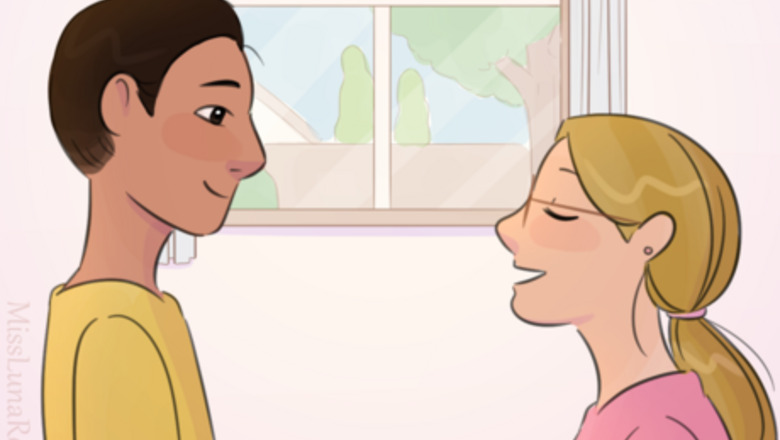
views
- Watch your crush's reaction when you smile or compliment them. If they blush or are constantly complimenting you too, they may like you too!
- Ask a loved one for advice if you're not sure what to do. They might be able to help you talk to your crush or get their attention.
- Be cautious before you make any moves toward your crush. In other words, feel them out before you confess your feelings.
Flirting & Dating
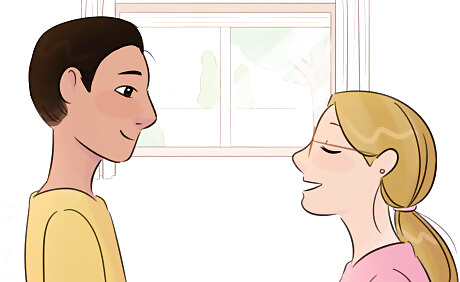
Start flirting. When you flirt, watch them and see if they smile, look pleased, and/or flirt back. This can help you tell whether they are interested in you too. If they are uncomfortable, tone it down or stop. You may naturally have an idea of what to do, and here are some options: Look at them from across the room, and smile. Find ways to touch them, like fixing their hair, picking lint off their shirt, or touching their arm. (Don't "trap" them, though; some people don't like touching.) Smile. Play with your hair. Face your crush, and use open body language. Compliment them once or twice.Tip: Keep it light! Avoid smothering your crush with compliments or touching them too much. This can make them uncomfortable.
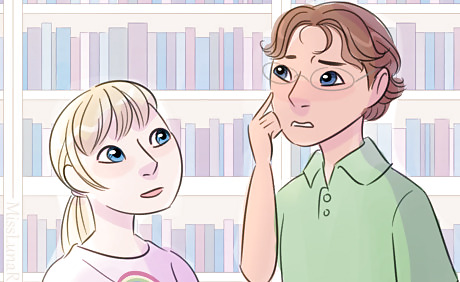
Watch their reactions and behavior. This will help you analyze if they are responding positively to flirting, and if they like you back. Someone who is interested in you might flirt back, seek you out to talk more, and show signs of embarrassment (such as blushing or looking away) while smiling. A disinterested person might use closed-off body language, avoid your touch, show signs of embarrassment while not smiling, and look away as if planning an escape. Either you are coming off too strong and need to tone it down, or they are not interested and you should stop. An interested person will probably smile and use open body language. They might also flirt back with extra compliments, touches, and lip-biting.
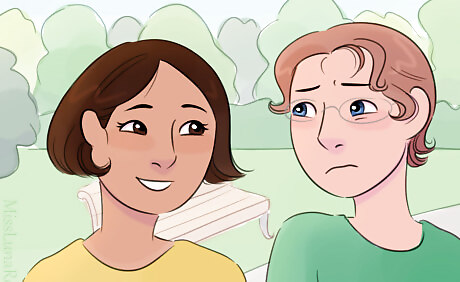
Recognize the bad kind of flirting. Some people "flirt" in pushy or disrespectful ways. While some people do this because they're copying what they learned, usually, it means they have entitled attitudes. Never date anyone who acts entitled to your time or body. And never assume you're entitled to someone else's. Negging means using put-downs in flirting. The person wants their target to feel insecure and try to "prove themselves." Even though you see it in some books and movies, it's manipulative and wrong. Boundary stomping means ignoring someone's clear boundaries. For example, if someone chases after someone who asked to be left alone, that's harmful.Warning: Be careful of radical "incel" communities. They lure in people (mostly straight men) who can't get dates and say that women are to blame. But they misunderstand how it works. Never trust anyone who treats dating like a hunt or a fight instead of a choice that two people make of their own free will. And don't self-victimize because you think autism is bad.
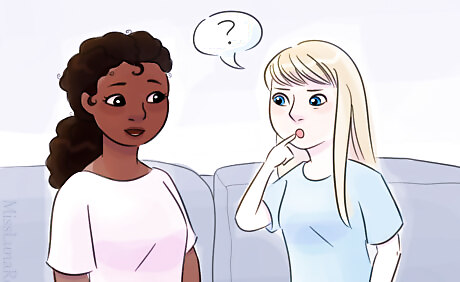
Ask a trusted friend for advice. Sometimes, a person on the outside can be a more objective judge of what exactly is going on here. They can usually offer good advice about whether the other person likes you back, and what to do next.
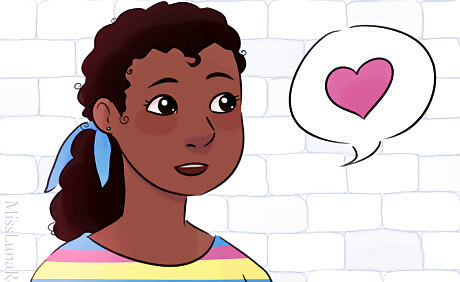
Tell your crush your feelings. While confessing to your crush how you feel about them may not be the best idea depending on the circumstances, if you feel like it's a good idea, then go for it. If you want the best chances of getting into a relationship, however, look at their signals and analyze them closely before telling them how you feel.
Considering the Situation

Recognize if you have a crush. It can be difficult to figure out emotions or feelings if you're autistic, so the first thing to do is to determine if you have a crush on this person. Find a way of sorting out what you feel by writing it out or talking about it with a trusted friend, and look for any key signs that you might have a crush. Does this person cause a jumble of thoughts to come rushing into your head all at once? You could have a crush on them. If you want to spend most of your time with this person, or if something exciting happens and you wish they were there to see it, then you may have a crush. If you stim when excited or nervous, try to keep an eye on how much you're stimming whenever you're around this person. If you start stimming a lot whenever you think of or are around this person, then it's possible you have a crush. If you smile a lot when thinking about them or talking to them, you could possibly have a crush. If you could previously speak somewhat smoothly around this person, and now you're suddenly tripping over your words, or are unsure of what to say all the time around them, you could have a crush. If you are shy around this person and are afraid of the impression you'll give off in conversation, you probably have a crush. If you regularly fantasize about spending time with this person, or even things like dating or kissing them, you definitely have a crush.

Accept your feelings. If you do have a crush, pretending that you don't have a crush isn't a very good course of action! While it can seem like a great way of dealing with it, when you eventually end up admitting it to yourself, it'll only end up making it worse. It's important to accept your feelings and recognize how you think of this person.
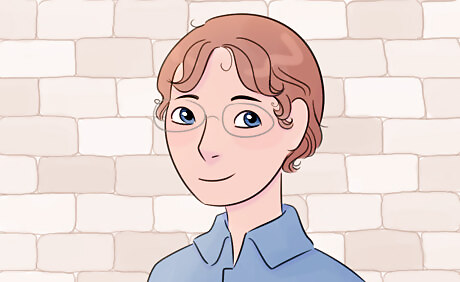
Realize there's nothing wrong with crushes. Sometimes, crushes can make you feel funny or like there's something wrong with you. It's important to realize that there's nothing wrong with having a crush on someone, and that most people end up getting a crush at some point in their life. As long as you respect the person you have a crush on and don't do anything to intentionally make them uncomfortable, there's nothing wrong with liking someone. If you don't have a crush, there's nothing wrong with that, either. Not having crushes doesn't mean that you're broken or that there's something the matter with you. It's possible you may be aromantic, or that you don't feel romantic attraction, and there's nothing "broken" about that.
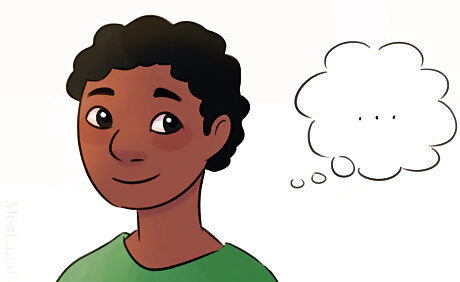
Determine the best course of action. When it comes to crushes, there's a lot of conflicting advice - tell, or don't tell? Be affectionate, or just behave normally? What you choose to do is often dependent on the factors of the situation, but it's usually best to take time out to decipher what you think is best. If your crush is significantly older or younger than you, it may be best to avoid telling them about your feelings or showing affection. You may get taken advantage of, or be viewed as "creepy".
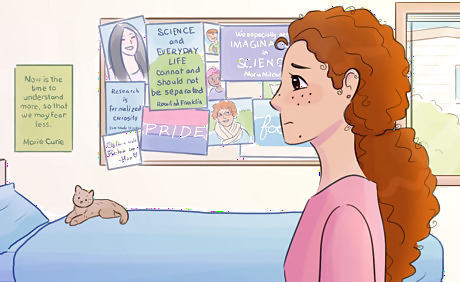
Be cautious. Unfortunately, not everyone in the world has good intentions, and it can be hard to figure out whom to avoid—especially if you have a crush. It's extremely important to tell who is a friend and who's not, as confessing your feelings to your crush may open up a window for you to be taken advantage of, and as a result, get badly hurt. Don't take this to mean that you should assume everyone is a bad person. Many people have good intentions, and if they find out you have a crush on them, their initial response won't be to hurt you. However, there are some people in the world with malicious intent and who may want to string you along or play mind games with you. For this reason, be careful about who you associate with. Avoid telling your crush how you feel if they belittle groups of people - for example, if they mock people of a different race than them or use "autistic" as an insult. This person probably isn't the kind of person you would want to be in a relationship with, no matter if you think they like you back or not.
Moving On
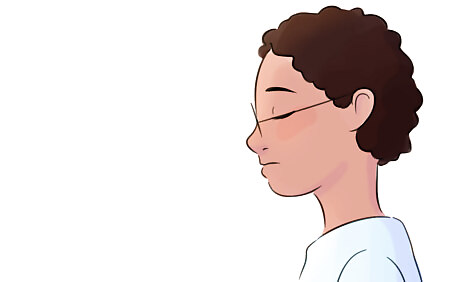
Recognize that rejection doesn't determine your worth. There are a number of reasons why you could have been turned down: the other person is too busy to date, you aren't their type, they have personal problems to work through, you aren't compatible, et cetera. Just like how you wouldn't want to date every single good person out there, they may reject good people. Nobody is everyone's type. Dita Von Teese once said, "You can be the ripest, juiciest peach in the world, and there's still going to be somebody who hates peaches." You can be wonderful and still not be compatible with someone. Make a list of positive characteristics. Consider traits enhanced by autism, and traits unique to you.
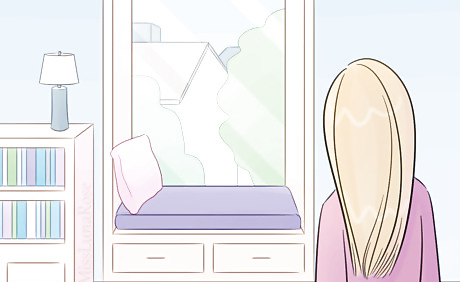
Give yourself time to be sad. It's normal to feel a mix of feelings after you lose an opportunity for a relationship. Take some extra "me" time, enjoy your special interests, and allow yourself to cry and watch cheesy TV shows. Thoughts of self-harm and/or suicide are not normal. You don't deserve to feel that way, and you can get help.
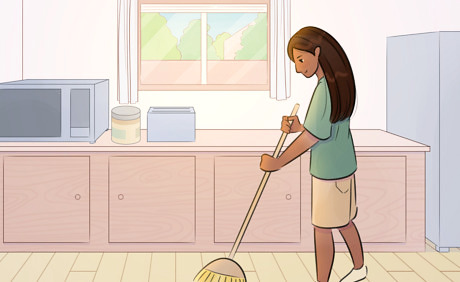
Take some space from them. Spending lots of time around the other person isn't healthy for you, because it will reignite old hurts. Give yourself time to recover.
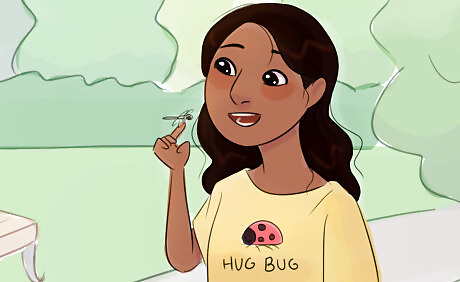
Have fun. Get together with people you enjoy spending time with, do activities that you enjoy doing, and try new activities that you've always wanted to try. Whether your idea of fun is going to the beach with friends, watching movies with popcorn, or working on a novel, go for it. It's good to break the cycle of sadness and do something you can enjoy. Look for activities that can get you out of the house. Loved ones can be a great distraction. Focus on them, how they feel, and what they've been up to. This can give you a break from your own problems. Learn a new skill, whether it's baking cookies or speaking another language.
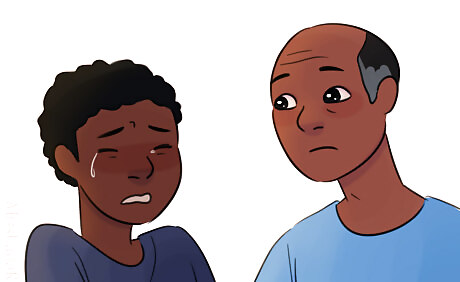
Talk to someone about your feelings. Turn to a family member, friend, or mentor whom you trust. They can help by offering a listening ear and helping you work through your feelings.



















Comments
0 comment